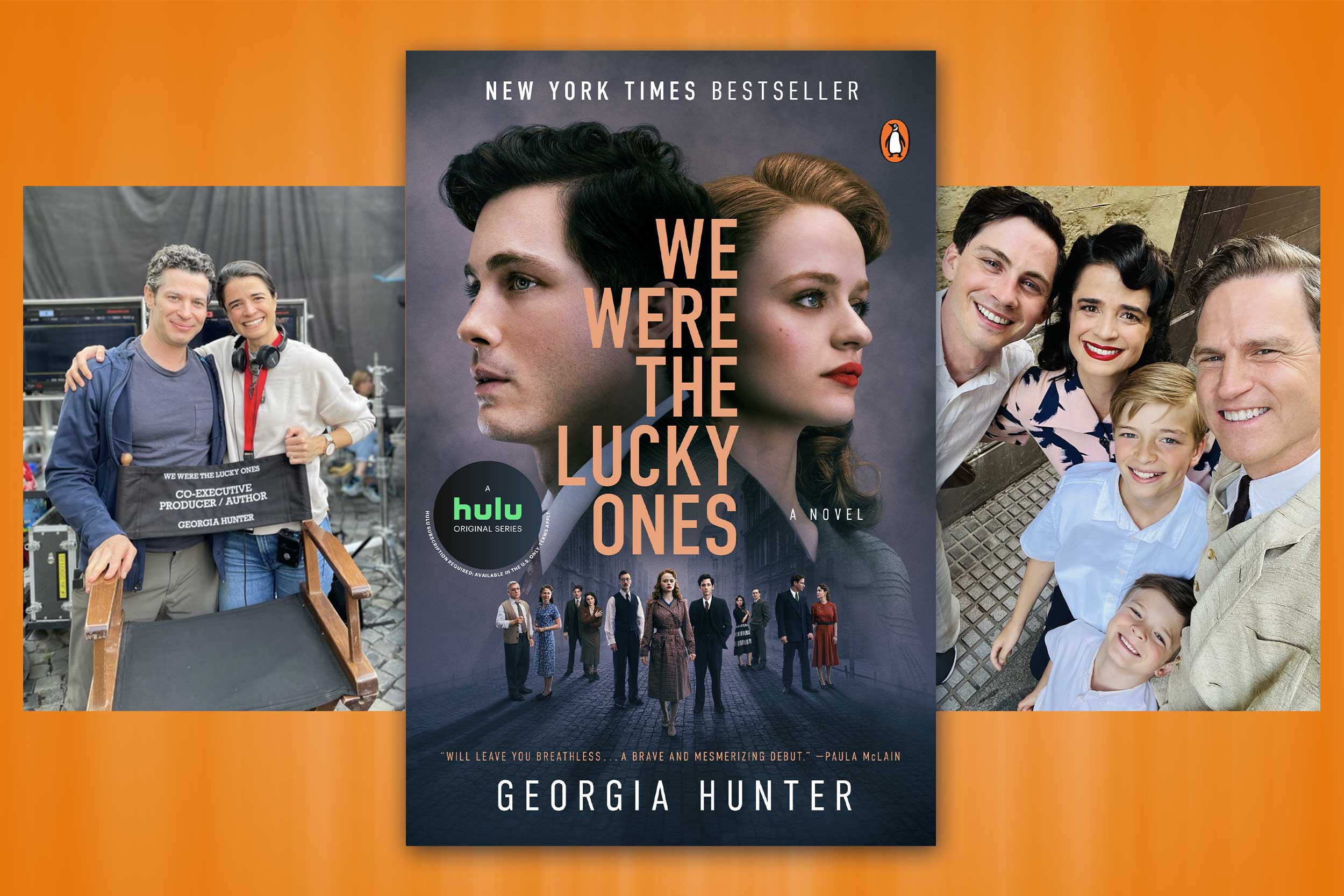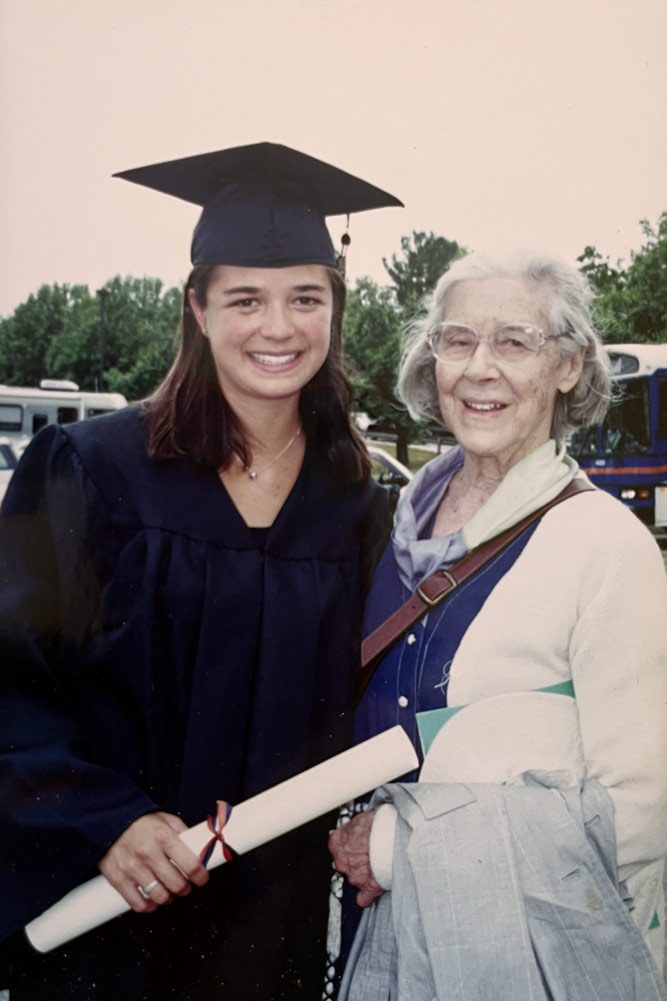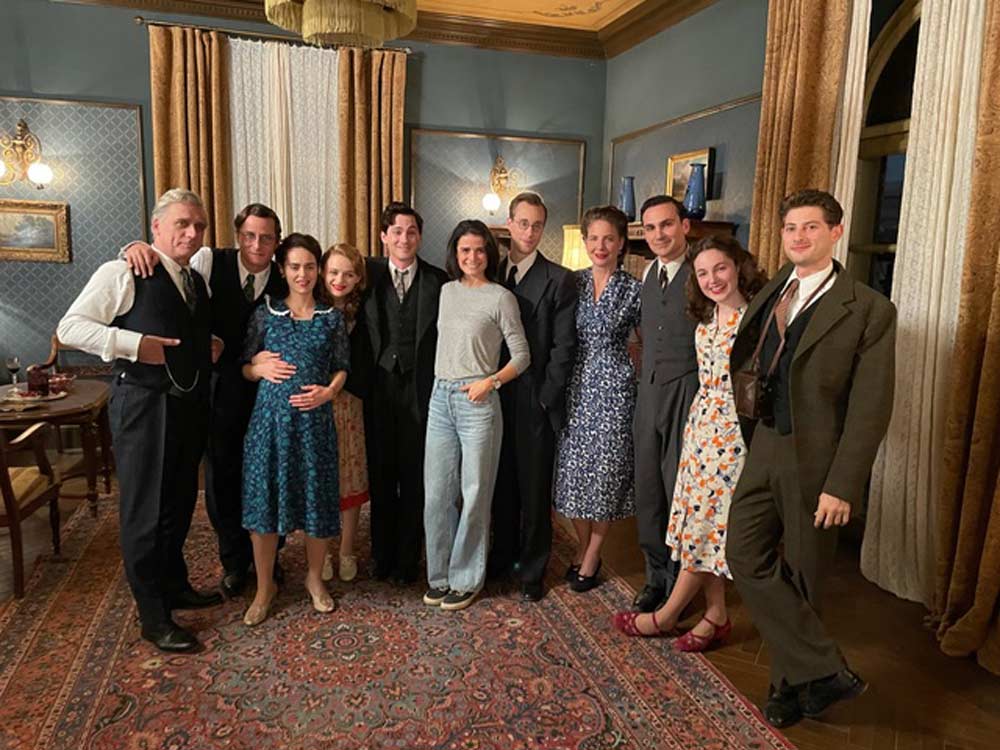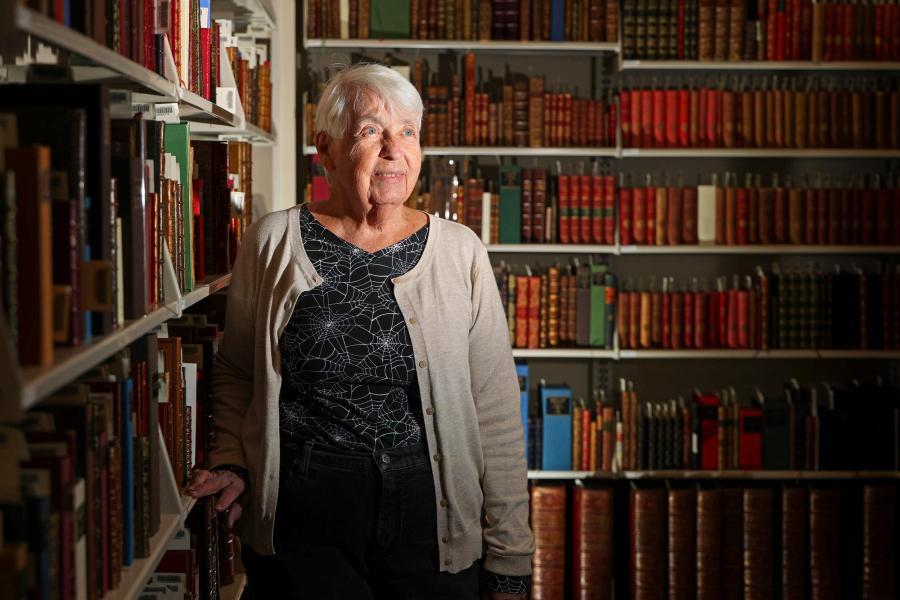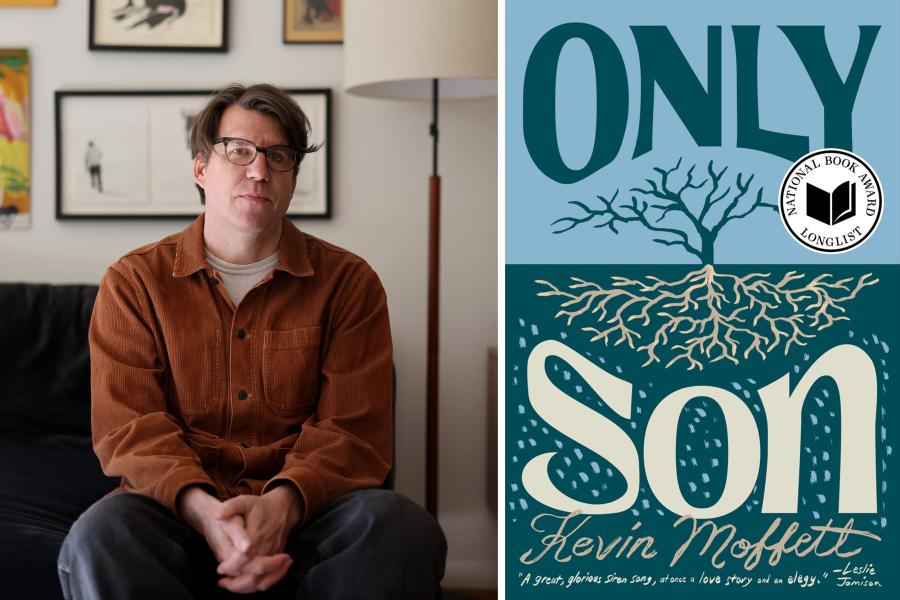“I adored him,” Hunter said. “But he never talked about the fact that he was born and raised in Poland and in the Jewish faith and that he came from a family of Holocaust survivors. I had no idea as a kid that that was a part of his past.”
In that interview, she learned his given name, Addy Kurc, and much more.
The UVA Connection
Hunter went on to the University of Virginia and graduated in 2000 with a degree in psychology. She ventured south from New England in part because her dad, Thomas O.D. Hunter, had graduated from UVA in 1955 with a degree in fine arts.
The summer following Hunter’s graduation, her mother Isabelle invited all nine of her first cousins to a huge family summer reunion at the Hunters' rustic vacation home in the woody, northeast portion of Martha’s Vineyard.
They all came, and they brought their families. “I think we were 32 of us at our peak,” Hunter said. “We had relatives from France, from Brazil, from Israel.
“I will never forget wandering out back one night of that reunion to where my mom and her cousins were sitting at a picnic table on the back porch, and I realized they were telling stories about the war,” she said.
These stories, Hunter reflected, were unlike others she had ever heard before. “There was a cousin there who talked about being born in Siberia,” Hunter said. “He said when he was an infant, his mother told him it was so cold he’d wake with his eyes frozen shut, and she would have to use her breast milk to coax them open.”
Hunter was stunned. “I remember sitting there as a 21-year-old and thinking, ‘How am I just hearing these stories now? And someone has to write them down.’”
Then she got busy.
Getting ‘We Were the Lucky Ones’ Published
It took her nearly 10 years, hundreds and hundreds of hours traveling to far corners of the earth for interviews, and countless book revisions to get the story right. One small, but critical, step to success came in the form of a UVA alumni connection.
Hunter’s good college friend, Sarah Landis, was an editor at Penguin at the time and she put Hunter in touch with a respected freelance editor who turned out to have amazing connections.
That editor, Jane Fransson, loved “We Were the Lucky Ones,” and Hunter said Fransson told her, “I feel like I know a few agents in the literary world who are just waiting for something like this to come across their plate. Can I reach out on your behalf?”
“When the book landed in the hands of Hunter’s now-friend and agent, Brettne Bloom, the author knew it had found its home.
Viking, which is an imprint at Penguin, picked up the book and the revisions continued to get it to 416 pages.
“It was a first-time gig and about my family story, so I can't say I ever got tired of it. But it was hard. Really hard,” Hunter said of the rewrites. “I think I rewrote chapter one 95 times.”
“We Were the Lucky Ones,” tells the true story of how Hunter’s grandfather and his four siblings survived the Holocaust to reunite later. It was published in 2017 to rave reviews.
Logan Lerman, Joey King Sign To Headline Seven-Episode Hulu Series
Another UVA connection came into play in the form of Thomas Kail, an accomplished director and childhood friend of Hunter’s husband, Robert Farinholt, himself a 2001 UVA graduate. Kail would go on to direct the Broadway hit “Hamilton,” among other projects.
Hunter said Kail suggested pitching her story to Hollywood. “He said, ‘Hey, buddy, how would you like to partner up to try to bring your story to the screen?” Hunter shared.
The pair went for it and created a pitch for the movers and shakers in Los Angeles. Despite lots of interest, no one bit.
Life went on. Kail married actress Michelle Williams, they had a child, and the pandemic began, with people around the world huddled in their homes and living in uncertainty.
A second pitch for a screen adaptation for “We Were the Lucky Ones” materialized in that environment.
“We’re in the middle of COVID. And, for the first time, many of us are feeling some of the same things that the family had been feeling,” Hunter said.
“We don’t know when we’re going to see each other again. Obviously, it’s not the same. But we were very isolated and very afraid for a long time. It really brought home that this is a true story and Hulu signed on the very next day.”
The seven-episode series ends May 2, and the marks are high on Rotten Tomatoes, with a 95% “Fresh” rating from reviewers and an 82% audience score.
Hunter says her degree in psychology at UVA was a definite plus. “I think I was just so interested in learning about people and why we are the way we are,” she said from her home in Connecticut. “So, I think for me, it was just like scratching that itch to learn more.”
